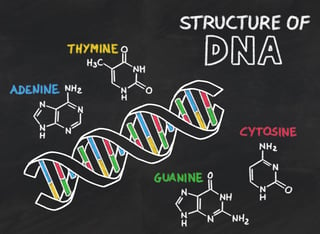Unlocking Your Genetic Sleep Disposition: AANAT and Melatonin
One of the reasons I was drawn to naturopathic medicine was its holistic approach to healing and illness—treating the body and all its processes as interconnected, rather than singling out individual symptoms and treatments. As I gained more experience, I learned from my patients and my colleagues that sleep disturbances are a significant part of that interconnected whole.
Like nutrition, sleep is one of our most basic needs, and the hormones that govern sleep exist in a fragile balance. When that balance is thrown off, it can cause a host of other problems.
But not everyone has the same balance.
The Role of the AANAT Gene in Regulating Sleep
As you may already know, the primary hormone associated with sleep is melatonin. Our bodies are designed to produce and release melatonin shortly after the sun goes down. Once in our bloodstreams, this melatonin causes a chain of other chemical reactions that cause us to become drowsy, eventually lulling us to sleep as long as we don't resist it.
causes a chain of other chemical reactions that cause us to become drowsy, eventually lulling us to sleep as long as we don't resist it.
Melatonin the production and release of melatonin is controlled by a series of enzymes affecting the pineal gland in the brain. One of the last of these enzymes, and an essential component in triggering the release of melatonin to begin the sleep cycle, is aralkylamine N-acetyltransferase, or AANAT. If AANAT isn't produced to trigger the pineal gland, melatonin isn't produced and the sleep cycle can be delayed.
Research has shown that AANAT production is controlled by a single gene—one tiny portion of your DNA is responsible for ensuring you produce the enzyme correctly and in the right amounts. Changes to that gene can affect the chemical signals sent to your pineal gland, disrupting the production of melatonin. That means your body won't get the soothing effects of melatonin that are supposed to help you get to sleep.
While insomnia and sleep disturbances can have many causes, we're now learning that there is a genetic basis for many sleep disorders.
Genetic testing can be conducted to determine if there has been any mutation to the AANAT gene affecting your melatonin, and can determine if smaller or larger doses of melatonin supplement are called for as a treatment. This knowledge also provides insight into our approach to sleep disorders and their relation to other mental and physical health problems. Genetic information can also give naturopathic medicine greater clarity in addressing the body as a whole. This process is refered to nutrigenomics.
Addressing Sleep Issues With a Genetic Basis
Your doctor should work with you to identify various sources of your sleep disturbance, including genetic as well as environmental, nutritional, and psychological factors. If a melatonin deficiency with a possibly genetic cause seems likely, a melatonin supplement might be recommended to put your body back in balance. Other behavioral and lifestyle changes can also help those suffering from delayed or interrupted sleep and other forms of insomnia, even if there's a genetic basis for the sleep disruptions. Check out this post for more details on sleep disturbance.
If you've been experiencing trouble sleeping and would like to explore naturopathic treatments that work with your body, not despite it, please contact our office today to schedule an appointment.

















